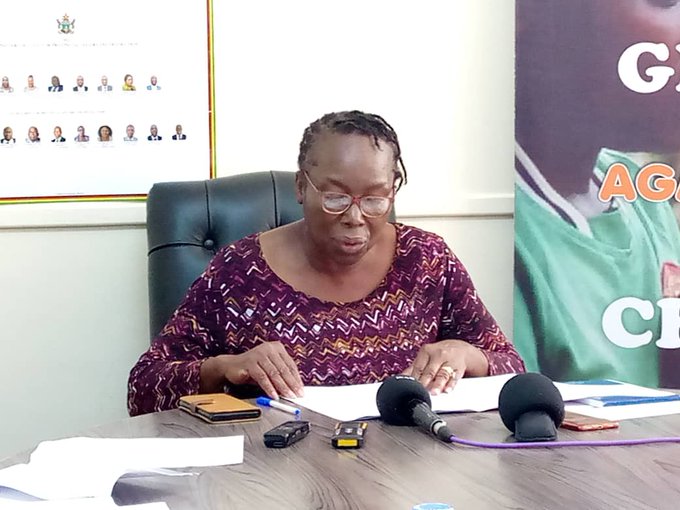|
Getting your Trinity Audio player ready...
|
By Hillary Munedzi
The Zimbabwe Gender Commission (ZGC) is urging stakeholders to address the drivers of child marriages and sexual exploitation, among them cultural and religious norms, poverty, and the unavailability of sanitary wear.
Speaking during a press conference in Harare recently on the preliminary findings of the national inquiry on sexual exploitation and abuse of young girls and child marriages, ZGC Chairperson Margret Mukahanana Sangarwe said the gathering engaged members of the public at a local level to have a holistic understanding of the problem as well as recommendations for multisectoral interventions. A total of 2470 community members attended the public hearings.
“The National Inquiry and investigation established that there are various drivers/causes of child marriages and sexual exploitation. Since the causes/drivers are multifaceted and interrelated, it is difficult to attribute child marriages and sexual exploitation to a single cause in any given context. The Inquiry established that there are common and general causes/drivers of child marriages and child exploitation that were identified in all the country’s ten provinces.
“These include cultural and religious norms which undervalue girls, particularly those with disabilities; virginity and other myths against girls with disabilities; early pregnancy; poverty and lack of economic opportunities; lack of school fees and sanitary wear; gaps in the legal system; effects of COVID-19 lockdowns; peer and parental pressure; unequal gender and power dynamics; sexual abuse, breakdown of family; vulnerability in child-headed households; lack of extra-curricular activities; abolishment of corporal punishment and lack of viable alternative options,” said Mrs. Mukahanana Sangarwe.
This comes at a time when two 9-year-old pregnant girls were raped, one of whom has already given birth. A month ago, 15-year-old Nokutenda Hwaramba died during childbirth in circumstances like that of 14-year-old Anna Machaya, who died while giving birth at an Apostolic church shrine in 2021. Another 17-year-old girl reportedly gave birth to twins but later died. During the lockdown, it is estimated that 4959 girls fell pregnant and risk losing educational opportunities as a result.
“It was observed that the disharmony between the age of marriage at 18 years with the age of consent to sex which is 16 years contributed to scattered definitions of the act and contributed to instances of child marriage. The overall sentiments from communities were that once a child turns 16 years and has completed their ordinary level, they feel it is ok for her to be married. They further stated that if a child can have sex, then they can also get married. In cases of teen pregnancy, parents do not want the burden of taking care of a pregnant child and therefore they resolve to get her married to ensure that the father takes responsibility.
“In some cases of traditional practices such as initiation, there is no specific age limit except to say that the practice can target girls as young as 12 years who are at a pre-puberty stage for initiation into womanhood which may be misinterpreted to mean that after initiation one becomes an adult and is therefore ready for marriage,” she said.
The Zimbabwe Republic Police has widened the search for the suspect responsible for impregnating the nine-year-old girl from Tsholotsho. This comes after the girl’s father and four other suspects were cleared by DNA results.






